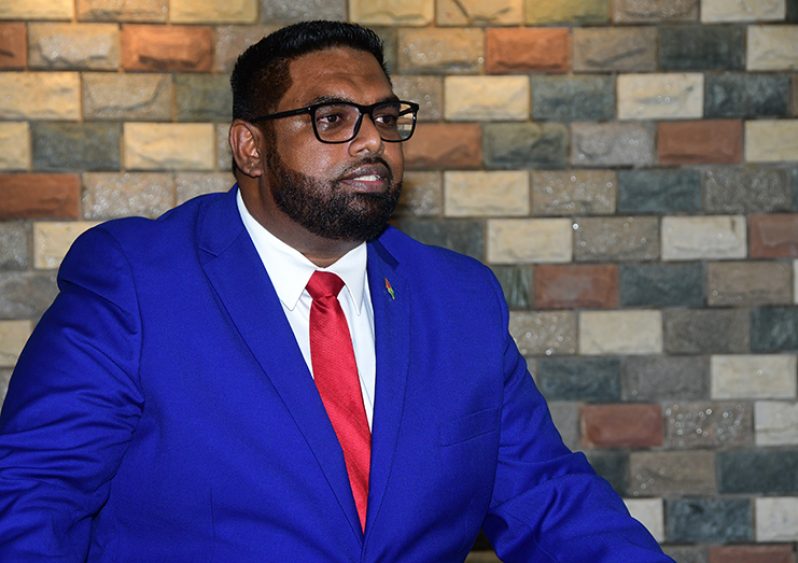By Navendra Seoraj
-Creating COVID-19 Response Unit
GUYANA’S economy, like many others around the world, has taken a hit because of the Novel Coronavirus (COVID-19) pandemic, especially at the household level, where jobs were lost, income dried up and, in some cases, hunger crept in.
The conditions were exacerbated further because of the political instability caused by a protracted electoral process, which only ended last Sunday. But, the new administration has “hit the ground running” and, according to newly-elected President, Dr. Irfaan Ali, his government is working to secure $4.5B as emergency response to help at the household level.
“We have reached out to several multilateral and bilateral sources with a view to urgently mobilise financial resources of the magnitude that is necessary to overcome the effects of this pandemic. I must say the response has been encouraging,” said Dr. Ali during his address at the inauguration ceremony, on Saturday.
To further ease the strain on persons, government had met with the Governor of the Central Bank and directed him to extend regulatory permission so as to allow for bankers to continue extending moratoriums.
Government has also looked at the possibility of adjusting the “reserve requirement” which will allow the banks to have more disposable resources and tie that adjustment with lower interest rates.
“We have started to examine, from a fiscal perspective, what support we can give to the private sector and other groups all with the view of supporting a resumption of the economic activities and putting people back to work,” said President Ali.
Guyana has so far recorded 554 cases of COVID-19, with 22 deaths. And, cases are climbing with every passing day.
“Every life in our nation matters and my Government will ensure that every life is protected from harm. The COVID-19 pandemic has already claimed too many lives. Everything possible must be done to protect our people from this dreaded and dreadful disease,” said President Ali.
That is why, as President, he promised to personally and urgently participate in his government’s programme to stop infection by the coronavirus, curb its spread, and safeguard the health of Guyana.
After completing a rapid assessment, the President already started to establish a structure to tackle the virus as effectively as possible.
Part of the structure includes the creation of a COVID-19 Response Unit comprising Government policymakers, represented by the Prime Minister and the Minister of Health, and regional and international partners such as CARICOM, Pan American Health Organisation (PAHO), and UNDP.
The Unit, he said, will be guided by a collaborative policy to address medical responses and to create a COVID-19 impact socio-economic plan for Guyanese.
Since taking office in just one week, the new administration has mobilised and received 46,000 rapid antibody test kits, Personal Protection Equipment; approximately 240,000 surgical masks, and face shields, gowns and other urgently needed supplies.
In addition to the rapid test kits, the Prime Minister of Barbados, the Honourable Mia Mottley, has sent an additional 15,000 PCR test kits.
And, by next week Guyana should receive another 10,000 PCR kits from PAHO, with a commitment to supply an additional 40,000 PCR kits.
“We have accessed three PCR testing machines with two more being sourced, and plans are in motion to train persons, including persons from the hinterland areas, in the use of the PCR machines and rapid test kits,” said President Ali.
According to the World Health Organisation (WHO), COVID-19 is an infectious disease caused by a newly discovered coronavirus.
Most people who fall sick with COVID-19 will experience mild to moderate symptoms and recover without special treatment.
The virus that causes COVID-19 is mainly transmitted through droplets generated when an infected person coughs, sneezes, or exhales. These droplets are too heavy to hang in the air, and quickly fall on floors or surfaces.
You can be infected by breathing in the virus if you are within close proximity of someone who has COVID-19, or by touching a contaminated surface and then your eyes, nose or mouth.




.jpg)








